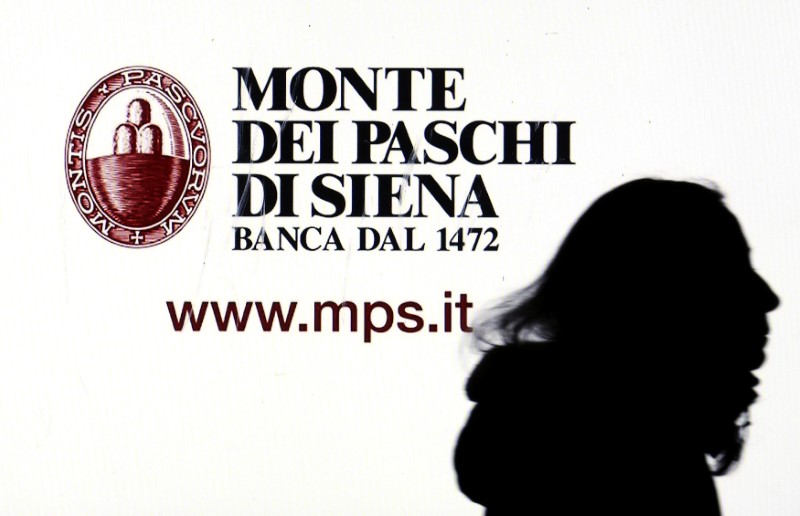By Giulio Piovaccari and Danilo Masoni
MILAN (Reuters) - The Italian government faces a paper loss of more than 30 percent on its 3.85 billion euros ($4.54 billion) rescue of troubled lender Monte dei Paschi di Siena (MI:BMPS), according to grey-market trading in the bank's new shares.
The world's oldest lender has not formally traded on the Milan bourse since December when the bank failed to raise enough capital to remove the threat of collapse. In July, Rome bailed it out, paying 6.49 euros per share for a controlling stake.
Traders and fund managers said on Thursday that Monte dei Paschi's shares were fetching between 4.14 and 4.35 euros in the grey market, where shareholders can sell them over-the-counter ahead of the resumption of trade on the exchange.
Italy's fourth-largest lender has not set a date for lifting the trade suspension, but says it will be in the autumn. The bank was brought low by years of ill-judged acquisitions and mismanagement.
A price of 4.14 euros would represent a paper loss of about 1.39 billion euros for Rome on the first phase of its bailout. It has pledged to later buy out retail holders of bank bonds for 1.5 billion euros, taking its stake to as much as 70 percent.
The government, though, has said it plans to hold its shares with a long-term aim of making a profit on its investment.
However, some institutional investors are already looking to sell their stock on the grey market, hedging against the risk that its value could sink even further ahead of resumed trade.
In the rescue, institutional investors who held subordinated bonds in Monte dei Paschi were forced to take losses. Their holdings were canceled and instead they received shares.
The grey-market share price is also supported by the credit default swap market, according to traders of default swaps.
Monte dei Paschi last traded at 16.05 euros per share, having lost 90 percent of its market value in 2016.

This last-traded price, however, cannot be compared to the grey market price given the bailout represents a complete overhaul of the bank's balance sheet.